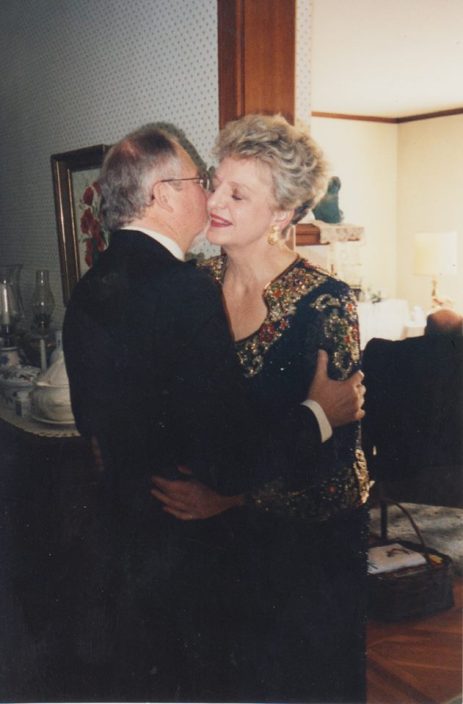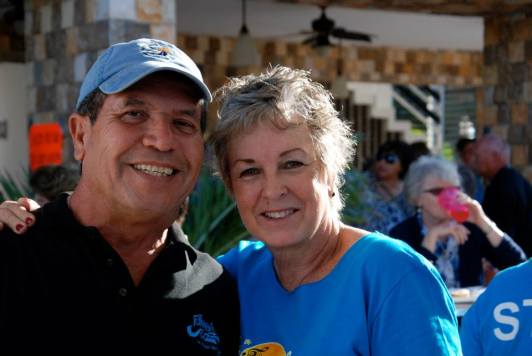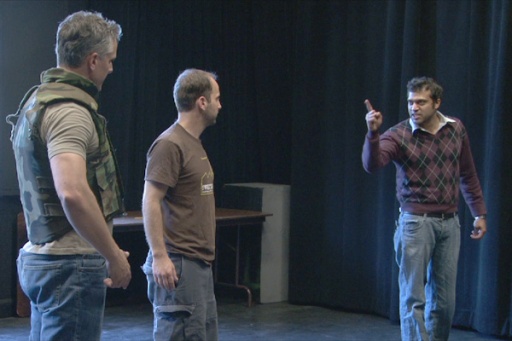
Claire Wentworth, expat extraordinaire
Claire Wentworth was having an afternoon cocktail at Néctar, her favorite place when she wanted to avoid the destitute expats that lingered around Mérida’s historic center.
A patrician WASP from Connecticut in her mid-70s, Claire Wentworth was elegant in the way most American women were no longer elegant: portraying a refined French flair, as inculcated in Americans via Paris-born American icon Diana Vreeland.
She was waiting for friends; she was in the habit of arriving early enough to have an initial cocktail on her own, to fortify herself for what was sure to unfold. She was, after all, living in Mérida, a bustling metropolis rising among the ruins of vast ceremonial centers the Maya, for unknown reason, abandoned when they decided, as a civilization, to collapse into oblivion.
For the most part, in oblivion they remain.
The waiter, a Mexican of no consequence, looked in her direction and smiled.

Claire Wentworth thought Hubert Duchenne was the hottest chef in the world.
For some reason, she nodded back, although she couldn’t imagine such familiarity with the restaurant staff at, say, Eleven Madison Park in New York or at Restaurant H in Paris. But she adored Roberto Solís, the chef, and she let it pass.
Although, truth be told, she thought Hubert Duchenne, of Restaurant H, was the sexiest chef alive. This was followed by Daniel Humm of Eleven Madison Park, meaning Roberto Solís ranked third.
Nonetheless, his food ranked up there, and she was glad to enjoy this libation in peace.
Peace.
One would assume that in a lovely second-tier city like Mérida, peace could be found in abundance. But that would be a naïve assumption. Mérida’s relative isolation made it a natural draw for American grifters, scam artists, and thieves. It was a natural haven for Americans running away from business and personal bankruptcies; child support payment; alimony judgments; and an array of other personal failures.
Here, they could gather their wits about them—and figure out how best to scam once more.
Her dim view of the intentions of her fellow expats was well-known about town. And she seldom thought about it; she avoided the American riff-raff about town as much as she could.

Was Telchac Education a scam or not? Claire Wentworth did not trust anything that Judy Abbott, who spent years promoting scams, was behind.
Indeed, the only reason she even thought about it was that her friend, Mary Bartley, had mentioned to her she was considering making a donation to Telchac Education, an organization that helped disenfranchised students in the nearby Port of Progreso and environs.
“Isn’t that one of Judy Abbott’s pet project?” Claire Wentworth had asked.
“I think that’s right,” Mary Bartley had asked.
“I do have my reservations,” she replied, slowly. “That woman has promoted more scams than I can remember.”
“Really?”
“Oh, that so-called House & Garden tours benefitted the people participating, and hardly the library at all,” the patrician WASP explained. “And let’s not even mention that other medical scam.”
It made Mary Bartley stop and reconsider her position.
“Perhaps you’re right,” she said, finally. “She has promoted dubious causes.”
“Not magnificent,” Claire Wentworth concluded. “The way she’s used that cheap rag, Yucatán Today, to deceive innocents of well-intentioned visitors and expats, it’s beneath contempt.”
Mérida, Claire Wentworth knew, was full of American grifters.
She sipped from her martini when she looked up and saw her lunch date arrive.

Elizabeth Silva arrived in town for the purpose of plotting to kidnap her own daughter.
“Oh, you beat me to the first drink, Claire!” Elizabeth Silva said, approaching the table.
The expat, a woman in her 60s, had moved to Mérida to carry out the kidnapping of her own teenage daughter; a misogynist judge in the States had awarded custody of her daughter to her ex-husband. Elizabeth Silva would not let that miscarriage of justice stand.
“It just worked out that way, Liz,” Claire Wentworth said, standing up.
The women kissed each other on the cheeks.
“I don’t know, Claire,” she said, smiling. “You always manage to get started.”
Claire Wentworth smiled; Elizabeth Silva looked at the waiter, who was admiring the women. He walked over to them.
“It’s an accomplishment, I say.”
The women laughed. The waiter took their cocktail orders.
“I know how you feel about Judy, but I still think it’s a worthy cause,” she told the alpha WASP. “William Lawson vouches for them.”
“Now, I know William is the only honorable Canadian from British Columbia in town,” she said with a Connecticut inflection. “But.”
“But what?”
“Anything that woman touches is suspect as far as I’m concerned.”
Claire Wentworth had not forgiven Yucatán Today for promoting all manner of scams. Elizabeth Silva realized there was no point in pushing the point, even if William Lawson supported the group.
“You’re right, Claire,” she said. “Only if Joann Andrews backed that group.”
“Her recommendation would be magnificent,” she said.
Joann Andrews was the pillar of the expat community, the one unimpeachable American presence in the Yucatán. Whenever a new consul was assigned to the American consulate, that diplomat paid a courtesy call to Mrs. Andrews, out of respect and because she was that much in-the-know.
“Somehow, I don’t think it’ll be forthcoming,” Elizabeth Silva said.
The waiter delivered the women their new drinks. They toasted to a fantastic lunch. Then the women discussed the topic on everyone’s mind.
“That wall,” Claire Wentworth said. “What a public relations fiasco.”
“That wall, that miserable wall,” Elizabeth Silva said, shaking her head. “We need to order another drink if we are going to deal with the damaged and misguided policies of this damaged and misguided administration.”
“Damaged and misguided?” Claire Wentworth asked, surprise in her tone. “Why do you say that?”
“Because pandering to working class voters with little education is so Third World,” she said. “That’s what they do here in Mexico—and look where it’s gotten them? Peasants are still walking around balancing baskets of fruit on their heads!”
Claire Wentworth couldn’t argue with that assessment. Everyone knew the ruling Institutional Revolutionary Party, or PRI, pandered and manipulated the masses in order with impunity.
“You are spot on, my dear,” Claire Wentworth said. “But if the wall is a mistake, what is unforgiveable is how we betrayed the Iraqi who helped us in W’s failed invasion of that country.”
Elizabeth suggested they order appetizers before getting into a serious discussion of America’s failed foreign policy. Claire agreed. Elizabeth ordered the roasted octopus and Claire went for the short rib tacos. They ordered another round of drinks.
“The American narrative from raised hopes to outright betrayal is nowhere more evident than how we have treated the Iraqis who believe us—took us at our word—that we would be there for them,” Claire Wentworth said. “Our failure to protect our closest friends—the Iraqi translators and their families—is a measure of the moral collapse of our nation and another American defeat. If America’s word means nothing, then we no longer are an exceptional nation.”
Elizabeth Silva was impressed. The moral clarity was compelling, especially given the amount of alcohol being consumed over lunch.
“Of course, the tragedy of our betrayal of all these Iraqi translators is unique,” Claire Wentworth stated with authority. “Our institutions in the aftermath of Vietnam were equally unresponsive. The difference is that in Iraq we did so much more to evacuate our Vietnamese colleagues. It would be easy to say this was a result of the far longer time of our involvement: Americans had Vietnamese girlfriends, wives, and children to get out. That wasn’t the case in Iraq, where few American soldiers fraternized with the locals.”
Elizabeth Silva agreed.
“And technology,” she added.
“Technology?” Claire Wentworth asked.
“In Vietnam, officers in Saigon bent the rules to get things done and get people out,” she explained, taking a sip of her martini. “But in Iraq? With emails and cell phones, officials in Baghdad were under the constant supervision of Washington.”
“You’re right,” the patrician WASP said, impressed. “Even if officers in Baghdad wanted to do the right thing, Washington could easily veto it.”

America betrayed so many Iraqis that it was the subject of theatrical works in the U.S.
“And the result was our betraying the Iraqis who believed in us the most,” Elizabeth Silva said.
The waiter brought the women their appetizers. They were ready to place their orders. Elizabeth ordered the venison with roasted corn pure, onions cooked with beer and honey, with sour orange jam. Claire settled on the lamb with plantain puree, organic yogurt, and oregano consommé.
“I really have to say it, but I have to conclude that who we are as a people today is not what we tell ourselves we should be, or what the world expects from us,” Claire Wentworth said, enjoying one of the short rib tacos in front of her.
“And it’s history repeating itself, with this immigration ban and this stupid wall.”
“So true.”
“Why do you think we keep making the same mistakes?”
“Because our educational system is so dismal, my dear,” the patrician WASP said. “Trump makes it seem like all this ideas can be implemented with no consequence—and ignoring historical context.”
“Just like the Spanish-American War,” Elizabeth Silva said.
“How so?”
“We all know the U.S. declared war on Spain on April 21, 1898, becoming the first overseas military conflict we waged,” Elizabeth Silva said, enjoying the roasted octopus.
“Of course.”
“But this war consisted of significant campaigns in both Cuba and the Philippine,” she said. “The reason, of course, was that we support Cuban and Filipino liberation movements. And the mysterious—but certainly convenient—explosion of the U.S.S. Maine battleship in Havana harbor gave us an excuse to move forward.”
“Just like Colin Powell’s make-believe weapons of mass destruction—”
“—mass distraction,” Elizabeth Silva corrected.
The women laughed.
“Yes, Colin Powell’s niggardly performance at the United Nations set things in motion for the 2003 invasion of Iraq.”

Colin Powell deceived the world community for an unjust war in 2003 the way President William McKinley made the U.S.S. Maine an excuse for an unjust war in 1898
“Yes, but the precedent was set by President William McKinley back in 1898 that resulted in W’s 2003 fiasco.”
“So true!”
“Only 11 days after the declaration of war, the Spanish Pacific fleet was defeated in Manila Bay—”
“—Commodore George Dewey! Brilliant military mind!”
“His defeat of the Spanish fleet was so decisive that President McKinley, unaware, ordered troops to assemble in San Francisco’s Presidio for a sea voyage to the Philippines.”
“No instant communication!”
“But the misguided lesson, of course, was, in the words of Secretary of State John Hay, that this was a ‘splendid little war.’”
“And Americans continue to believe that all military engagements will be splendid little wars,” Claire Wentworth said.
“When, the truth is, they become protracted affairs that last decades and ruin millions of lives,” Elizabeth Silva observed.
“Speaking of ruined lives,” Claire Wentworth said, with a wicked smile. “I heard Robert Berton was promoting a Black Party for Carnival.”

Human wreckage Michael Berton was a festering boil on the sphincter of the American expat community in town.
Robert Berton was an insufferable homosexual from the Midwest who plagued the city’s historic center, like a case of untreated gonorrhea.
“That man?” I haven’t seen him in months,” Elizabeth Silva said.
“With a face like that—he does look like he’s been ravaged by lipodystrophy, doesn’t he?”
“Claire, please, not while we’re eating.”
“You’re right, my dear!”
The waiter came to clear their plates. They ordered another round of drinks to accompany the entrees.
“If you want to know the truth, I did speak to him months back about something to do with Evolución.”
Evolución was a no-kill dog shelter that was a popular cause among expats in town.
“My sympathies.”
The women laughed. One waiter brought over their entrees; another followed with their drinks.
“I just am so tired of all these catty little queers about town,” Claire Wentworth said.
“They are almost as insufferable as geriatric feminists back in the U.S.!”
“Oh, don’t get me started on Gloria Steinem, that wreck!”
“Exactly!”
“‘Do not try to divide us,’” Gloria Steinem warned President Trump on the Women’s March. ‘If you force Muslims to register, we will all register as Muslims,’” Claire Wentworth mocked.
“Good!” Elizabeth Silva said. “Let that stupid bitch register as a Muslim.”
“Good?”
“You better believe it!” Elizabeth Silva said. “I can’t wait for Gloria Steinem registers as a Muslim—and then she can be subjected to being beaten with a stick like impetuous women are in Saudi Arabia and have her clitoris cut off the way they do to Muslim women in Egypt!”
The women laughed at the absurdity of Western women championing cultures that continued to oppress women.
“I’m with Nazi Paikidze,” Claire Wentworth said.
“I agree!”
Nazi Paikidze is the reigning U.S. female champion. When she was advised she would have to wear a hijab to participate in a chess tournament in Iran, she balked.
“I’m so glad you do.”
Elizabeth Silva reached for her tablet, a faux pas, and looked up Nazi Paikidze’s statement on the matter: “Here it is, Claire. ‘By participating, I would be forced to submit to forms of oppression designed specifically for women. It sets the wrong example, particularly for young girls interested in chess.’”

While faux feminists complied with dictates designed to oppress women, Nazi Paikidze stood her ground, resisting efforts to deny women self-determination.
“Bravo!” she said.
“Any woman who dresses as she is ordered to dress by a man is a faux feminist,” Elizabeth Silva said, motioning for the waiter.
The women needed another round of martinis.
“I’m so glad you could make it to lunch, Liz.”
“You know I adore your company.”
“It’s so hard to have an engaging conversation with someone who’s read almost nothing and knows even less,” Claire Wentworth pronounced. “That’s why almost all the expats in this town are unsuitable to invite into one’s presence.”
“Tell me about it!” she said, laughing. “I feel the same way.”